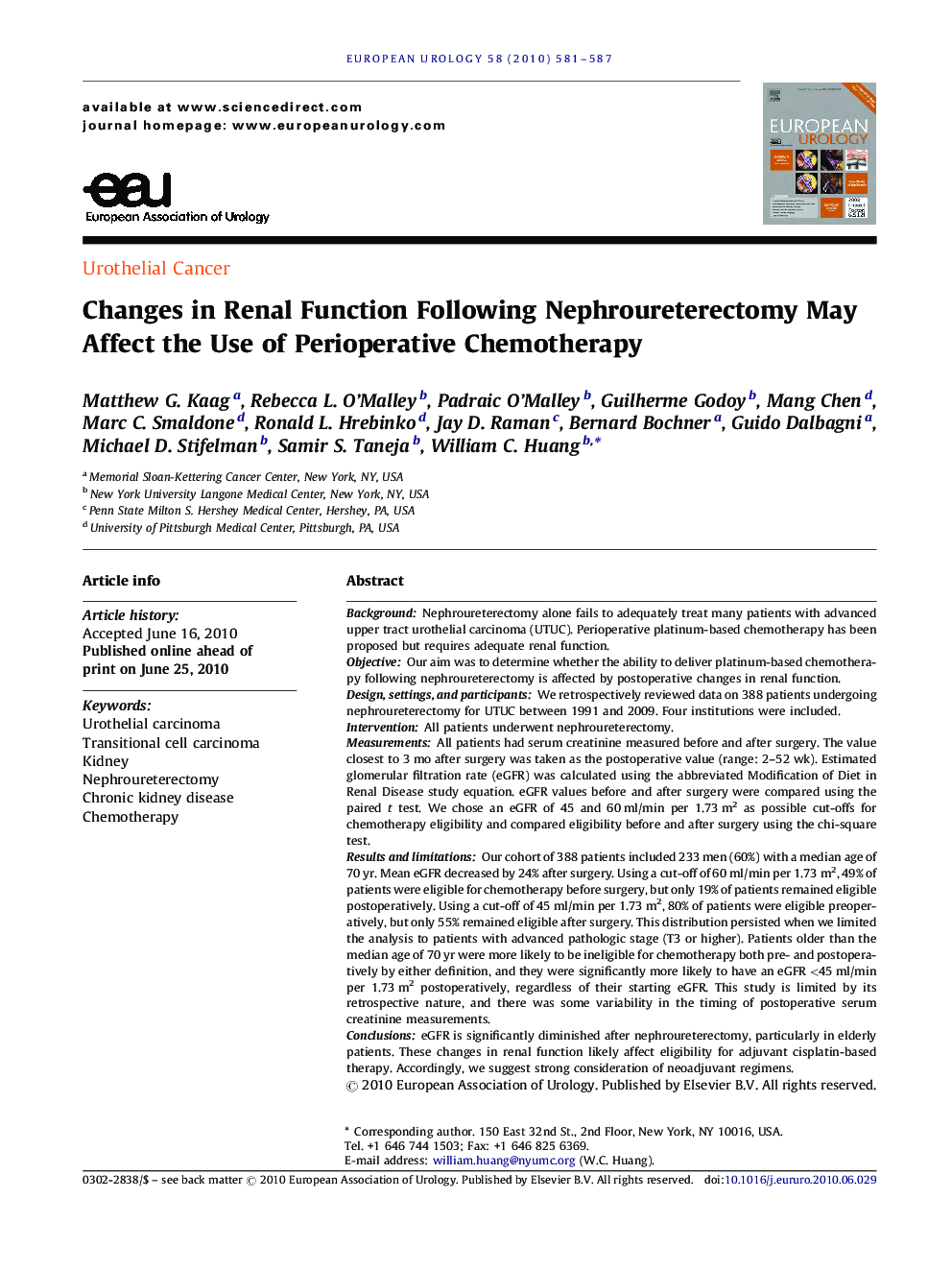| Article ID | Journal | Published Year | Pages | File Type |
|---|---|---|---|---|
| 3927537 | European Urology | 2010 | 7 Pages |
BackgroundNephroureterectomy alone fails to adequately treat many patients with advanced upper tract urothelial carcinoma (UTUC). Perioperative platinum-based chemotherapy has been proposed but requires adequate renal function.ObjectiveOur aim was to determine whether the ability to deliver platinum-based chemotherapy following nephroureterectomy is affected by postoperative changes in renal function.Design, settings, and participantsWe retrospectively reviewed data on 388 patients undergoing nephroureterectomy for UTUC between 1991 and 2009. Four institutions were included.InterventionAll patients underwent nephroureterectomy.MeasurementsAll patients had serum creatinine measured before and after surgery. The value closest to 3 mo after surgery was taken as the postoperative value (range: 2–52 wk). Estimated glomerular filtration rate (eGFR) was calculated using the abbreviated Modification of Diet in Renal Disease study equation. eGFR values before and after surgery were compared using the paired t test. We chose an eGFR of 45 and 60 ml/min per 1.73 m2 as possible cut-offs for chemotherapy eligibility and compared eligibility before and after surgery using the chi-square test.Results and limitationsOur cohort of 388 patients included 233 men (60%) with a median age of 70 yr. Mean eGFR decreased by 24% after surgery. Using a cut-off of 60 ml/min per 1.73 m2, 49% of patients were eligible for chemotherapy before surgery, but only 19% of patients remained eligible postoperatively. Using a cut-off of 45 ml/min per 1.73 m2, 80% of patients were eligible preoperatively, but only 55% remained eligible after surgery. This distribution persisted when we limited the analysis to patients with advanced pathologic stage (T3 or higher). Patients older than the median age of 70 yr were more likely to be ineligible for chemotherapy both pre- and postoperatively by either definition, and they were significantly more likely to have an eGFR <45 ml/min per 1.73 m2 postoperatively, regardless of their starting eGFR. This study is limited by its retrospective nature, and there was some variability in the timing of postoperative serum creatinine measurements.ConclusionseGFR is significantly diminished after nephroureterectomy, particularly in elderly patients. These changes in renal function likely affect eligibility for adjuvant cisplatin-based therapy. Accordingly, we suggest strong consideration of neoadjuvant regimens.
